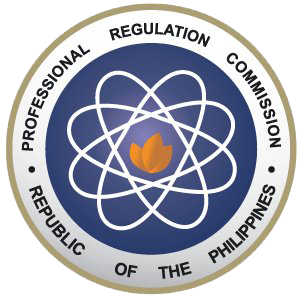Register of Qualifications
Search Qualifications
| Qualification Code | Qualifications | Descriptor | Level | Authority Granting Agency |
Instrument (PSG/CMO/Board Resolution) |
Date of Authorization |
|---|---|---|---|---|---|---|
| 60711 | Bachelor of Science in Chemical Engineering | CHEMICAL ENGINEEERING is a profession that involves the conceptualization, development, design, improvement and application of safe, healthy, ethical and economic ways of utilizing materials and energy in unit processes and operations for the benefit of society and the environment through the knowledge of mathematics, chemistry, biology, information technology and other natural, applied and social sciences, gained by study, research and practice. Graduates of the program should be able to: 1) Apply knowledge of mathematics and science to solve complex chemical engineering problems. 2) Design and conduct experiments, as well as to analyze and interpret data. 3) Design a system, component, or process to meet desired needs within realistic constraints, in accordance with standards. 4) Function in multidisciplinary and multi-cultural teams. 5) Identify, formulate, and solve complex chemical engineering problems. 6) Understand professional and ethical responsibility. 7) Communicate effectively complex chemical engineering activities with the engineering community and with society at large. 8) Understand the impact of chemical engineering solutions in a global, economic, environmental, and societal context. 9) Recognize the need for, and engage in life-long learning. 10) Know contemporary issues. 11) Use techniques, skills, and modern engineering tools necessary for chemical engineering practice. 12) Know and understand engineering and management principles as a member and leader of a team, and to manage projects in a multidisciplinary environment. 13) Understand at least one specialized field of chemical engineering practice. | VI | CHED | CMO No. 91, s. 2017 | 12/4/2017 - Present |
| 60732 | Bachelor of Science in Civil Engineering | CIVIL ENGINEERING is a profession that applies the basic principles of science in conjunction with mathematical and computational tools to solve problems associated with developing and sustaining civilized life on our planet. Graduates of the program should be able to: 1) Apply knowledge of mathematics and science to solve complex civil engineering problems. 2) Design and conduct experiments, as well as to analyze and interpret data. 3) Design a system, component, or process to meet desired needs within realistic constraints, in accordance with standards. 4) Function in multidisciplinary and multi-cultural teams. 5) Identify, formulate, and solve complex civil engineering problems. 6) Understand professional and ethical responsibility. 7) Communicate effectively civil engineering activities with the engineering community and with society at large. 8) Understand the impact of civil engineering solutions in a global, economic, environmental, and societal context. 9) Recognize the need for, and engage in life-long learning.10) Know contemporary issues. 11) Use techniques, skills, and modern engineering tools necessary for civil engineering practice. 12) Know and understand engineering and management principles as a member and leader of a team, and to manage projects in a multidisciplinary environment.13) Understand at least one specialized field of civil engineering practice. | VI | CHED | CMO No. 92, s. 2017 | 12/4/2017 - Present |
| 60714 | Bachelor of Science in Computer Engineering | The BACHELOR OF SCIENCE IN COMPUTER ENGINEERING is a program embodies the science and technology of design, development, implementation, maintenance and integration of software and hardware components in modern computing systems and computer-controlled equipment. Graduates of the program should be able to: 1) Apply knowledge of mathematics and science to solve complex engineering problems. 2) Design and conduct experiments, as well as to analyze and interpret data. 3) Design a system, component, or process to meet desired needs within realistic constraints such as economic, environmental, social, political, ethical, health and safety, manufacturability, and sustainability, in accordance with standards. 4) Function in multidisciplinary teams. 5) Identify, formulate, and solve complex engineering problems. 6) Understand professional and ethical responsibility. 7) Communicate effectively. 8) Understand the impact of engineering solutions in a global, economic, environmental, and societal context. 9) Recognize the need for, and engage in life-long learning. 10) Know contemporary issues. 11) Use techniques, skills, and modern engineering tools necessary for engineering practice. 12) Know and understand engineering and management principles as a member and leader of a team, and to manage projects in a multidisciplinary environment. | VI | CHED | CMO No. 87, s. 2017 | 12/4/2017 - Present |
| 60713 | Bachelor of Science in Electrical Engineering | ELECTRICAL ENGINEERING is a profession that involves the conceptualization, development, design and application of safe, healthy, ethical, economical and sustainable generation, transmission, distribution and utilization of electrical energy for the benefit of society and the environment through the knowledge of mathematics, physical sciences, information technology and other allied sciences, gained by study, research and practice. Graduates of the program should be able to: 1) Apply knowledge of mathematics and science to solve engineering problems. 2) Conduct appropriate experimentation, analyze and interpret data. 3) Design a system, component, or process to meet desired needs within realistic constraints such as economic, environmental, social, political, ethical, health and safety, manufacturability, and sustainability, in accordance with standards. 4) Function effectively on multi-disciplinary and multi-cultural teams that establish goals, plan tasks, and meet deadlines. 5) Identify, formulate, and solve complex engineering problems in electrical engineering. 6) Recognize ethical and professional responsibilities in engineering practice. 7) Communicate effectively with a range of audiences. 8) Understand the impact of engineering solutions in a global, economic, environmental, and societal context. 9) Recognize the need for additional knowledge and engage in life-long learning. 10) Articulate and discuss the latest developments in the field of electrical engineering. 11) Apply techniques, skills, and modern engineering tools necessary for engineering practice. 12) Demonstrate knowledge and understanding of engineering and management principles as a member and/or leader in a team to manage projects in multidisciplinary environment. | VI | CHED | CMO No. 88, s. 2017 | 12/4/2017 - Present |
| 60714 | Bachelor of Science in Electronics Engineering | The scope and nature of practice of the ELECTRONICS ENGINEER shall embrace and consist of any work or activity relating to the application of engineering sciences and/or principles to the investigation, analysis, synthesis, planning, design, specification, research and development, provision, procurement, marketing and sales, manufacture and production, construction and installation, tests/measurements/control, operation, repair, servicing, technical support and maintenance of electronic components, devices, products, apparatus, instruments, equipment, systems, networks, operations and processes in the fields of electronics, including communications and/or telecommunications, information and communications technology (ICT), computers and their networking and hardware/firmware/ software development and applications, broadcast/broadcasting, cable and wireless television, consumer and industrial electronics, electro optics/photonics/opto-electronics, electro-magnetics, avionics, aerospace, navigational and military applications, medical electronics, robotics, cybernetics, biometrics and all other related and convergent fields. Graduates of the program should be able to:1) Apply knowledge of mathematics and science to solve engineering problems.2) Design and conduct experiments, as well as to analyze and interpret data. 3) Design a system, component, or process to meet desired needs within realistic constraints such as economic, environmental, social, political, ethical, health and safety, manufacturability, and sustainability, in accordance with standards.4) Function on multidisciplinary teams. 5) Identify, formulate, and solve engineering problems. 6) Apply professional and ethical responsibility. 7) Communicate effectively. 8) Identify the impact of engineering solutions in a global, economic, environmental, and societal context. 9) Recognize the need for, and an ability to engage in life-long learning. 10) Apply knowledge of contemporary issues. 11) Use techniques, skills, and modern engineering tools necessary for engineering practice. 12) Apply knowledge of engineering and management principles as a member and leader in a team, to manage projects and in multidisciplinary environments.13) Understand at least one specialized field of electronics engineering practice. | VI | CHED | CMO No. 101, s. 2017 | 12/4/2017 - Present |
| 60731 | Bachelor of Science in Geodetic Engineering | GEODETIC ENGINEEERING is that branch of engineering which deals with the collection and measurement of spatial data above, on, or below the surface of the earth using appropriate technologies and the scientific and methodological processinf and management of thse data for the production of spatial information systems, maps, plans, charts annd other documents. Graduates of the program should be able to: 1) Apply knowledge of mathematics, physical sciences, and engineering sciences to the practice of geodetic engineering. 2) Design and conduct experiments to test hypotheses and verify assumptions, as well as to organize, analyze and interpret data, draw valid conclusions, and develop mathematical models for processes. 3) Design, improve, innovate, and to supervise systems or procedures to meet desired needs within realistic constraints, in accordance with standards. 4) Work effectively in multi-disciplinary and multi-cultural teams in diverse fields of practice. 5) Identify, formulate, and solve geodetic engineering problems. 6) Understand professional, social, and ethical responsibility. 7) Communicate effectively through oral, written, print, and other media. 8) Understand the effects and impact of the geodetic engineering profession on the environment and the society. 9) Engage in life-long learning and to keep current of the developments in a specific field of specialization. 10) Know contemporary issues. 11) Use the appropriate techniques, skills and tools necessary for the practice of geodetic engineering. 12) Know and understand engineering and management principles as a member and leader of a team, and manage projects in a multidisciplinary environment.13) Understand at least one focus area of geodetic engineering practice and apply such knowledge to provide solutions to actual problems. | VI | CHED | CMO No. 89, s. 2017 | 12/4/2017 - Present |
| 60732 | Bachelor of Science in Industrial Engineering | The BACHELOR OF SCIENCE IN INDUSTRIAL ENGINEERING program is intended to prepare students for a professional Industrial Engineering career including a leading role in the design, improvement, and installation of integrated systems of people, materials, information, equipment, and energy. Graduates of the program should be able to: 1) Apply knowledge of mathematics and science to solve complex industrial engineering problems. 2) Design and conduct experiments, as well as to analyze and interpret data. 3) Design a system, component, or process to meet desired needs within realistic constraints such as economic, environmental, social, political, ethical, health and safety, manufacturability, and sustainability, in accordance with standards. 4) Function on multidisciplinary and multicultural teams. 5) Identify, formulate, and solve complex industrial engineering problems. 6) Understanding of professional and ethical responsibility. 7) Communicate effectively. 8) Understand the impact of engineering solutions in a global, economic, environmental, and societal context. 9) Recognition of the need for, and an ability to engage in life-long learning. 10) Knowledge of contemporary issues. 11) Use techniques, skills, and modern engineering tools necessary for engineering practice. 12) Knowledge and understanding of engineering and management principles as a member and leader in a team, to manage projects and in multidisciplinary environments. 13) Design, develop, implement, and improve integrated systems that include people, materials, information, equipment and energy. | VI | CHED | CMO No. 96, s. 2017 | 12/4/2017 - Present |
| 60722 | Bachelor of Science in Materials Engineering | MATERIALS ENGINEERING is that field of study which deals with the synthesis and use of both fundamental and empirical knowledge about materials (in particular, how the properties of a material are related to composition, structure and processing) in order to develop, prepare, modify and apply them to specific needs. Graduates of the program should be able to: 1) Apply knowledge of mathematics and science to solve complex materials engineering problems. 2) Design and conduct experiments in materials engineering, as well as to analyze and interpret data. 3) Design a system, component, or process relevant to materials engineering practice to meet desired needs within realistic constraints such as economic, environmental, social, political, ethical, health and safety, manufacturability, and sustainability, in accordance with standards. 4) Function in multidisciplinary as well as multi-cultural teams. 5) Identify, formulate and solve complex engineering problems in the realm of materials engineering. 6) Understand professional and ethical responsibility. 7) Communicate effectively using appropriate media with the engineering community and with society at large. 8) Understand the impact of materials engineering solutions in a global, economic, environmental and societal context. 9) Recognize the need for, and engage in life-long learning. 10) Know contemporary issues. 11) Use techniques, skills and modern engineering tools necessary for materials engineering practice. 12) Know and understand engineering and management principles as a member and leader in a team, and to manage projects in a multidisciplinary environment. | VI | CHED | CMO No. 95, s. 2017 | 12/4/2017 - Present |
| 60715 | Bachelor of Science in Mechanical Engineering | MECHANICAL ENGINEERING is a profession that concerns itself with mechanical design, energy conversion, fuel and combustion technologies, heat transfer, materials, noise control and acoustics, manufacturing processes, rail transportation, automatic control, product safety and reliability, solar energy, and technological impacts to society. Graduates of the program should be able to: 1) Apply knowledge of mathematics and science to solve complex mechanical engineering problems. 2) Design and conduct experiments, as well as to analyze and interpret data. 3) Design a system, component, or process to meet desired needs within realistic constraints, in accordance with standards. 4) Function in multidisciplinary and multi-cultural teams. 5) Identify, formulate, and solve complex mechanical engineering problems. 6) Understand professional and ethical responsibility. 7) Communicate effectively. 8) Understand the impact of mechanical engineering solutions in a global, economic, environmental, and societal context. 9) Recognize the need for, and engage in life-long learning. 10) Know contemporary issues. 11) Use techniques, skills, and modern engineering tools necessary for mechanical engineering practice.12) Know and understand engineering and management principles as a member and leader of a team, and to manage projects in a multidisciplinary environment. | VI | CHED | CMO No. 97, s. 2017 | 12/4/2017 - Present |
| 60715 | Bachelor of Science in Metallurgical Engineering | METALLURGICAL ENGINEERING is a profession that involves the teaching and practice of the science and technology of preparing minerals and metals from ores by separating them from mechanical mixture and/or chemical combination and finally processing them for economic benefit. Graduates of the program should be able to: 1) Apply knowledge of mathematics and science to solve complex engineering problems relevant to Metallurgical Engineering practice. 2) Design and conduct experiments in Metallurgical, Engineering, as well as to analyze and interpret data. 3) Design a system, component, or process to Metallurgical Engineering practice to meet desired needs within realistic constraints such as economic, environmental, social, political, ethical, health. 4) Function in multidisciplinary as well as multi-cultural teams. 5) Identify, formulate, and solve complex engineering problems in the realm of Metallurgical Engineering. 6) Understand professional and ethical responsibility. 7) Communicate effectively using appropriate media. 8) Understand the impact of Metallurgical Engineering in a global, economic, environmental, and societal context. 9) Recognize the need for, and engage in life-long learning. 10) Know contemporary issues. 11) Use techniques, skills, and modern engineering tools necessary for Metallurgical Engineering practice. 12) Know and understand engineering and management principles as a member and leader of a team, and to manage projects in a multidisciplinary environment. | VI | CHED | CMO No. 100, s. 2017 | 12/4/2017 - Present |
| 60724 | Bachelor of Science in Mining Engineering | MINING ENGINEERING is a profession that deals with the application of mathematics, natural and applied sciences, humanities and social sciences in mineral deposit assessment; mine feasibility study; mine design, development and construction; management of mining operations, mining and mineral economics, environmental protection and safety, and associated activities and processes; and, mine progressive rehabilitation, closure, and decommissioning to harness mineral resources safely and economically for the social and economic benefits of the country. Graduates of the program should be able to: 1) Apply knowledge of mathematics and science to solve Mining Engineering problems. 2) Design and conduct experiments, as well as to analyze and interpret data. 3) Design a system, component, or process to meet desired needs within realistic constraints, in accordance with standards. 4) Function in multidisciplinary and multi-cultural teams. 5) Identify, formulate, and solve Mining Engineering problems. 6) Understand professional and ethical responsibility. 7) Communicate effectively Mining Engineering activities with the engineering community and with society at large. 8) Understand the impact of Mining Engineering solutions in a global, economic, environmental, and societal context. 9) Recognize the need for, and engage in life-long learning. 10) Know contemporary issues. 11) Use techniques, skills, and modern engineering tools necessary for Mining Engineering practice. 12) Know and understand engineering and management principles as a member and leader of a team, and to manage projects in a multidisciplinary environment. | VI | CHED | CMO No. 99, s. 2017 | 12/4/2017 - Present |
| 60712 | Bachelor of Science in Sanitary Engineering | The BACHELOR OF SCIENCE IN SANITARY ENGINEERING program recognizes the importance of sanitary engineering in the protection and preservation of the environment as well as the promotion of health and well-being of the general public. Graduates of the program should be able to: 1) Apply knowledge of mathematics and science to solve complex sanitary engineering problems. 2) Design and conduct experiments, as well as to analyze and interpret data. 3) Design a system, component, or process to meet desired needs within realistic constraints, in accordance with standards. 4) Function in multidisciplinary and multi-cultural teams. 5) Identify, formulate, and solve complex sanitary engineering problems.6) Understand professional and ethical responsibility. 7) Communicate effectively complex sanitary engineering activities with the engineering community and with society at large. 8) Understand the impact of sanitary engineering solutions in a global, economic, environmental, and societal context. 9) Recognize the need for, and engage in life-long learning. 10) Know contemporary issues. 11) Use techniques, skills, and modern engineering tools necessary for sanitary engineering practice. 12) Know and understand engineering and management principles as a member and leader of a team, and to manage projects in a multidisciplinary environment. | VI | CHED | CMO No. 98, s. 2017 | 12/4/2017 - Present |
| 60912 | Doctor of Medicine | The DOCTOR OF MEDICINE program is at least a four (4)-year post baccalaureate program consisting of basic science and clinical courses. The main goal of the program is to develop professional physicians for the Philippine healthcare system. Graduates of the program should be able to: 1) Demonstrate clinical competence. 2) Communicate effectively. 3) Lead and manage health care teams. 4) Engage in research activities. 5) Collaborate within interprofessional teams. 6) Utilize systems-based approach to healthcare. 7) Enagage in continuing personal and professional development. 8) Adhere to ethical, professional, and legal standards. 9) Demonstrate nationalism, internationalism, and dedication to service. 10) Practice the principles of social accountability. | VII | CHED | CMO No. 18, s. 2016 | 4/7/2016 - Present |
| 60911 | Doctor of Dental Medicine | The DOCTOR OF DENTAL MEDICINE program is a six (6)-year program consisting of basic science, clinical science and dental publlic health courses. The program aims to produce graduates who are adept in the prevention, diagnosis, identification and management of oral needs and diseases of the individual and the community. Graduates of the program should be able to: 1) Provide quality oral health care. 2) Communicate effectively. 3) Plan, and deliver community and extension dental services. 4) Engage in research activities. 5) Apply business principles, entrepreneurship, practices and processes. 6) Practice life-long learning and continue to be a life-long learner. 7) Practice ethical/legal/moral principles and social accountability. 8) Demonstrate nationalism, internationalism and dedication to service. 9) Utilize systems-based approach to healthcare. 10) Collaborate with interprofessional teams. 11) Assume leadership and management role. 12) Participate in the conduct of researches. 13) Act as an advocate/mobilizer. | VI | CHED | CMO No. 03, s. 2018 | 4/5/2018 - Present |
| 60912 | Doctor of Optometry | DOCTOR OF OPTOMETRY is a six (6)-year program consisting of first two years of general education courses, middle two years of allied health & medical sciences, ocular/visual biology, vision/visual science, optics, theories, principles & practice of optometry, legal management, and last two years of clinical courses, clinics and internship rotations in different fields of optometry specialization. Graduates of the program should be able to: 1) Possess knowledge in basic allied and health sciences, general and ocular medical sciences, visual sciences, clinical sciences, as well as an understanding of the health care delivery system.2) Provide quality eye and vision care through comprehensive and appropriate examination, measurement, assessment, diagnosis, treatment and management of eye and vision conditions. 3) Demnstrate competence in the prevention, detection, diagnosis, and management of visual conditions and processes caused by systemic disease. 4) Exhibit standard personal, professional, and ethical values fitting of a health care provider. 5) Be cognizant and responsive to the health care needs of the community and other sectors. 6) Commit to life-long and continuing professional development. 7) Conduct and present research and clinical studies which will contribute to the advancement of optometry and improve the quality of life. | VI | CHED | CMO No. 15, s. 2018 | 7/25/2018 to Present |
Page 44 of 101






